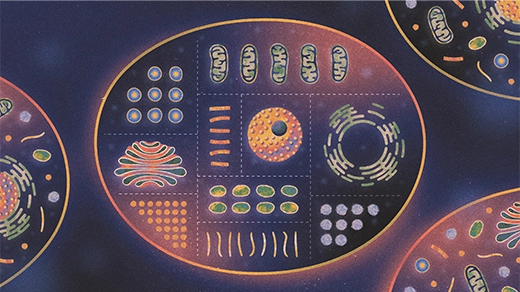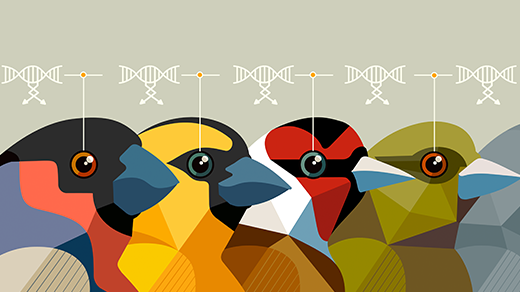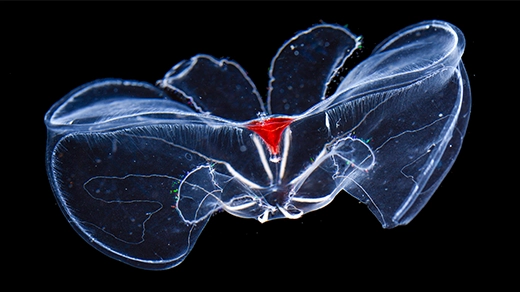What's up in
Evolution
Latest Articles
Meet the Eukaryote, the First Cell to Get Organized
All modern multicellular life — all life that any of us regularly see — is made of cells with a knack for compartmentalization. Recent discoveries are revealing how the first eukaryote got its start.
Why Is It So Hard to Define a Species?
The idea of a species is fundamental to the way that many people understand the structure of life on Earth. But ask 10 specialists how they define the concept and you might get 10 answers. In this episode, co-host Janna Levin speaks with evolutionary biologist Kevin de Queiroz about what makes defining and delineating species such a slippery process, and why it matters to our understanding of both evolution and conservation.
The Hidden World of Electrostatic Ecology
Invisibly to us, insects and other tiny creatures use static electricity to travel, avoid predators, collect pollen and more. New experiments explore how evolution may have influenced this phenomenon.
The Cellular Secret to Resisting the Pressure of the Deep Sea
Cell membranes from comb jellies reveal a new kind of adaptation to the deep sea: curvy lipids that conform to an ideal shape under pressure.
The Physics of Cold Water May Have Jump-Started Complex Life
When seawater gets cold, it gets viscous. This fact could explain how single-celled ocean creatures became multicellular when the planet was frozen during “Snowball Earth,” according to experiments.
The Mystery of the Missing Multicellular Prokaryotes
Why have bacteria never evolved complex multicellularity? A new hypothesis suggests that it could come down to how prokaryotic genomes respond to a small population size.
Tiny Tweaks to Neurons Can Rewire Animal Motion
Altering a protein in the neurons that coordinate a rattlesnake’s movement made a slow slither neuron more like a speedy rattle neuron, showing one way evolution can generate new ways of moving.
Cellular Self-Destruction May Be Ancient. But Why?
How did cells evolve a process to end their own lives? Recent research suggests that apoptosis, a form of programmed cell death, first arose billions of years ago in bacteria with a primitive sociality.
Mollusk Eyes Reveal How Future Evolution Depends on the Past
The visual systems of an obscure group of mollusks provide a rare natural example of path-dependent evolution, in which a critical fork in the creatures’ past determined their evolutionary futures.








